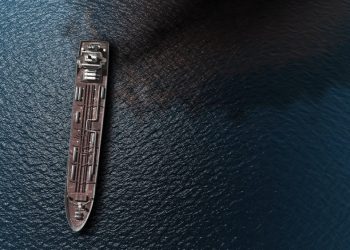Large-scale oil spills, where hundreds of tons of petroleum products are accidentally released into the oceans, not only have devastating effects on the environment, but have significant socio-economic impact as well.In a bid to improve the technology utilized by cleanup crews to manage and contain such large spills, researchers from the Institute of Bioengineering and Nanotechnology (IBN) of A*STAR have invented a smart oil-scavenging material or supergelators that could help clean up oil spills efficiently and rapidly to prevent secondary pollution.
Current techniques of cleaning up oil spills are not very efficient and may even cause further pollution or damage to the environment. These supergelators are derived from highly soluble small organic molecules, which instantly self-assemble into nanofibers to form a 3D net that traps the oil molecules so that they can be removed easily from the surface of the water.
“Marine oil spills have a disastrous impact on the environment and marine life, and result in an enormous economic burden on society. Our rapid-acting supergelators offer an effective cleanup solution that can help to contain the severe environmental damage and impact of such incidents in the future,” said IBN Executive Director Professor Jackie Y. Ying.
Motivated by the urgent need for a more effective oil spill control solution, the IBN researchers developed new compounds that dissolve easily in environmentally friendly solvents and gel rapidly upon contact with oil. The supergelator molecules arrange themselves into a 3D network, entangling the oil molecules into clumps that can then be easily skimmed off the water’s surface.
“The most interesting and useful characteristic of our molecules is their ability to stack themselves on top of each other. These stacked columns allow our researchers to create and test different molecular constructions, while finding the best structure that will yield the desired properties,” said IBN Team Leader and Principal Research Scientist
IBN’s supergelators have been tested on various types of weathered and unweathered crude oil in seawater, and have been found to be effective in solidifying all of them. The supergelators take only minutes to solidify the oil at room temperature for easy removal from water. In addition, tests carried out by the research team showed that the supergelator was not toxic to human cells, as well as zebrafish embryos and larvae. The researchers believe that these qualities would make the supergelators suitable for use in large oil spill areas.
The Institute is looking for industrial partners to further develop its technology for commercial use.
Further information may be found by watching the video below
Source & Image credit:A*STAR






























































